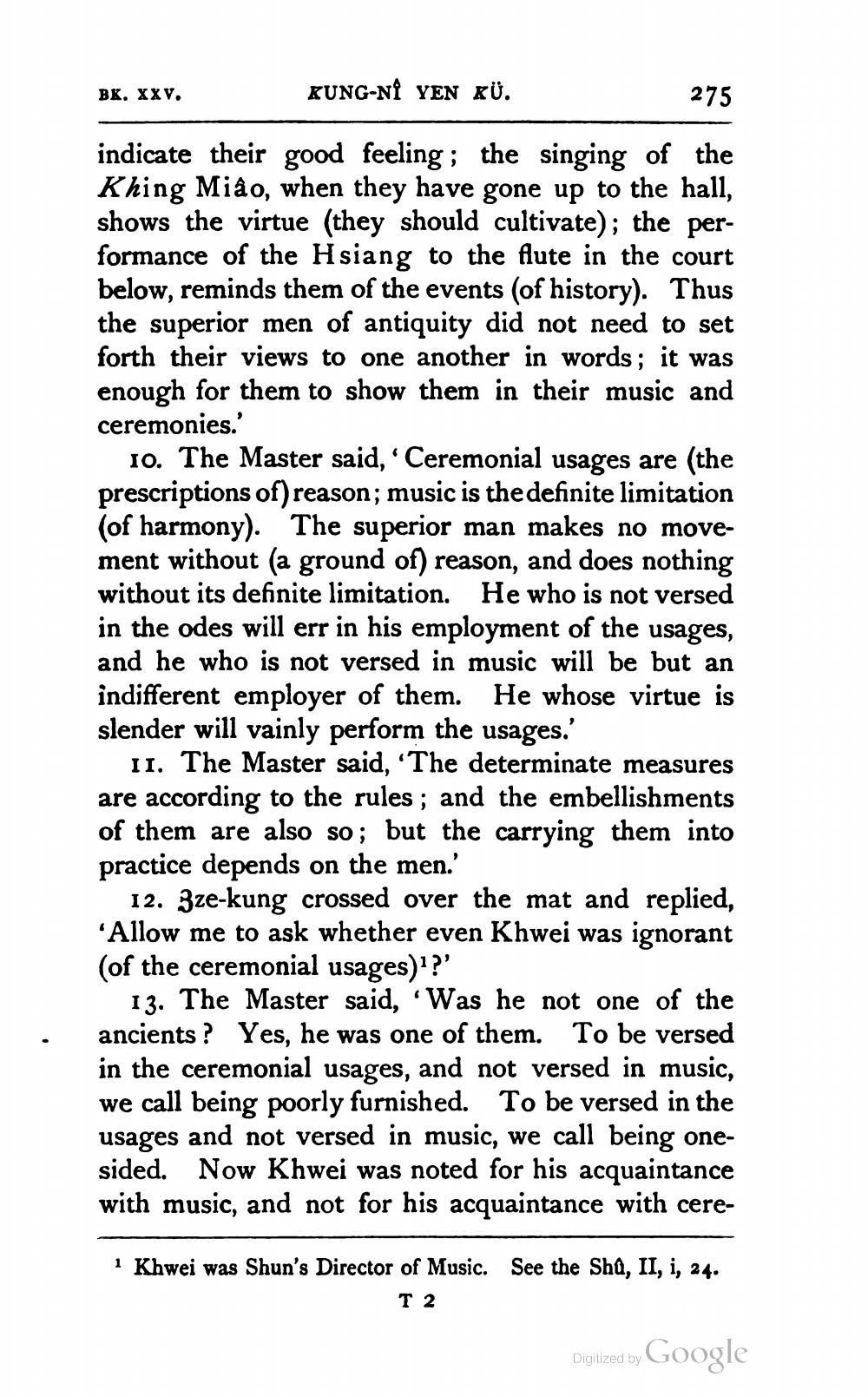________________
KUNG-Nİ YEN KÜ.
275
indicate their good feeling; the singing of the Khing Miâo, when they have gone up to the hall, shows the virtue (they should cultivate); the performance of the Hsiang to the flute in the court below, reminds them of the events (of history). Thus the superior men of antiquity did not need to set forth their views to one another in words; it was enough for them to show them in their music and ceremonies.'
BK. XXV.
10. The Master said, 'Ceremonial usages are (the prescriptions of) reason; music is the definite limitation (of harmony). The superior man makes no movement without (a ground of) reason, and does nothing without its definite limitation. He who is not versed in the odes will err in his employment of the usages, and he who is not versed in music will be but an indifferent employer of them. He whose virtue is slender will vainly perform the usages.'
II. The Master said, 'The determinate measures are according to the rules; and the embellishments of them are also so; but the carrying them into practice depends on the men.'
12. 3ze-kung crossed over the mat and replied, 'Allow me to ask whether even Khwei was ignorant (of the ceremonial usages)1?'
13. The Master said, 'Was he not one of the ancients? Yes, he was one of them. To be versed in the ceremonial usages, and not versed in music, we call being poorly furnished. To be versed in the usages and not versed in music, we call being onesided. Now Khwei was noted for his acquaintance with music, and not for his acquaintance with cere
1 Khwei was Shun's Director of Music. See the Shû, II, i, 24.
T 2
Digitized by
Google




